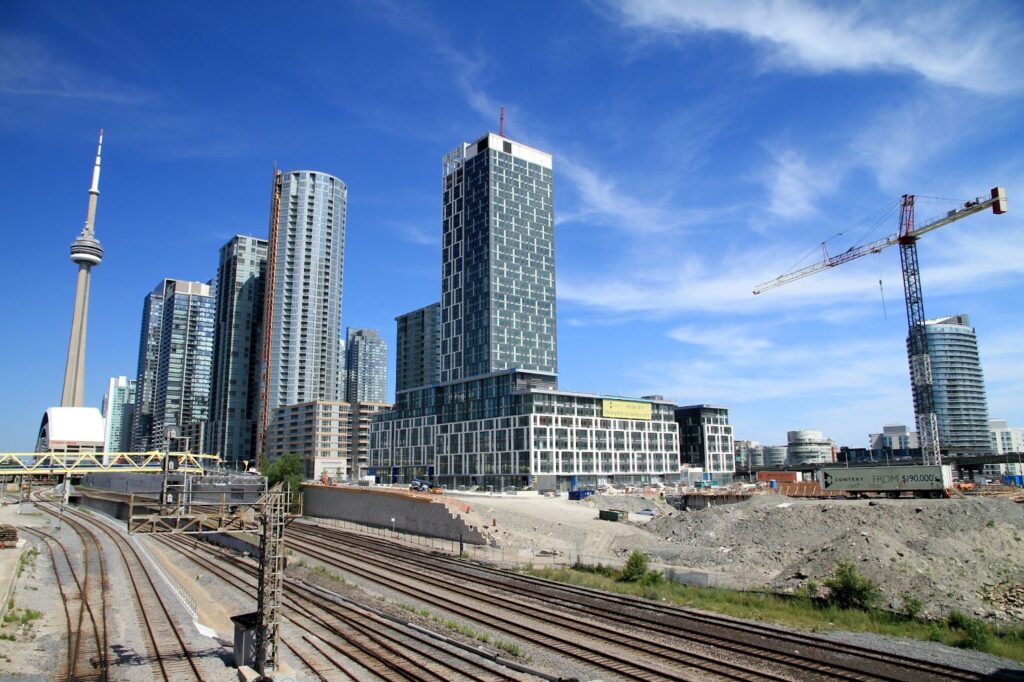One of the most important ideas in investing is that the longer you have to invest, the larger your returns can be. Not only does a longer time on the market allow you to take advantage of growth, but it also allows you to more easily ride out market fluctuations and reduce risk. An investor who can correctly anticipate the market could easily become rich overnight – if it were only that easy.
Real estate investors and real estate professionals are always looking forward and trying to predict the future to get ahead in the market. This is, on some level, necessary as due diligence is crucial when purchasing a property, however, it’s also wishful thinking. The farther one looks from their current date, the harder it becomes to predict the way the market will go. After all, look at the most recent shakeup in the form of the COVID-19 pandemic. Not only was its occurrence and its effects on the market completely unexpected, some predicted it would be the thing to finally crash the real estate market. As we know, this hasn’t been the result.
But, despite the questionable reliability of such predictions, let’s have some fun and try to predict what the real estate market in Toronto will look like in 10 years.
How far can you reliably predict?
The truth is, when it comes to predicting market activity, no one can say for sure what even next week will hold. However, there are indicators that can give us fairly confident ideas within a period of time. Though past performance can’t predict future success, current conditions can help predict the near future to some extent.
The safest predictions are made on a monthly or quarterly basis as these are most affected by current conditions. Adding on to that, especially in real estate, there have tended to be certain seasonal cycles that can make quarterly predictions fairly reliable. Going further out, predicting a year in the future can also be relatively reliable. Especially when you look at things like government action or international politics that may take a long time to play out, the writing may be on the wall for a long time before effects are felt, which can allow for predictions well in advance.
Predicting beyond more than a few years is best used for a general sense of things. For example, demographers may be able to predict the future population of Toronto based on expected growth, or the average age of citizens. Governments look to these sorts of predictions in order to anticipate the growing needs for infrastructure and development in the coming years.
These are pretty good guesses, but when it comes to financing it gets trickier. Very few analysts will, with confidence, attempt to predict how things will look in five or 10 years. The only benefit to predicting this far is that by the time things come to fruition, your incorrect predictions may well be forgotten.
One useful methodology particularly applicable to real estate is to look at other similar cities in similar areas. Generally, cities can go through stages in their growth and, by looking at other cities further along in their development, it can tell us some things about how Toronto may develop over time. This can be one of the more reliable ways to predict the future of cities, though no two cities grow in the exact same ways, or face the same challenges.
What was predicted in the past?
Before we begin predicting the future of Toronto, it can be interesting to take a look back at what was predicted 10 or more years ago about the city in its current state. Remember when I said that prediction will be forgotten in 10 years? Well, the internet never forgets.

In 2012, there was a lot of talk of a real estate bubble in Toronto. Many felt that the housing boom had gone on far too long and that a correction was in store for Toronto real estate prices and Canada as a whole. Sound familiar?
CBC News noted in 2010 that “Economists agree that double-digit increases in housing prices in the are unsustainable in the long run.” Luckily for us, the long run has been greater than 12 years.
David Foot predicted in the year 2000 that “The real estate market will pick up during the second decade of the new century” and will offer a window of opportunity in which boomers can cash out thanks to high market performance. This prediction is not too far off from reality given the way Toronto home prices have grown in the last 22 years and with the hot seller’s market currently being seen in the city.
Speaking of house prices, in 2007 economist Benjamin Tal predicted that the average price of a home nationally would double by 2026. According to the Canadian Real Estate Association, at that point, the average price in Toronto was around $379,025.
The market clearly exceeded Tal’s predictions, at least in Toronto, where average prices doubled by 2019. The average benchmark price in Toronto is now nearing a second doubling from 2019 and we haven’t even reached 2026 yet.
Overall, the reliability of past predictions is hit or miss. It is quite remarkable for those who were able to hit close to the mark and it is a testament to their forward-thinking. However, I would not say that the margin of error is narrow enough that any investor should believe in these long-term predictions for financial advice.
Potential futures for Toronto
The long-awaited crash
Just like in Toronto in 2012, some are predicting a crash in real estate. I have to take this prediction with a grain of salt. Though , clearly, the last 10 years have displayed the resilience of Toronto as a market.
Nonetheless, should it happen, house prices in Toronto could be depressed for quite some time. The last major crash of the 90s saw prices take over 10 years to recover. For any investor looking to buy now, you should keep the possibility in mind.
Depending on when a crash would occur and how quickly price growth can recover, 10 years from now may be the first time that a buyer in 2022 would be able to sell for a profit. If you are a believer in the crash but are still , you need to be thinking of a long-term plan.
Prices remain high
This prediction may seem contradictory to the previous, but that may not be the case. It is very possible that Canada will experience a real estate correction, but this won’t hit every area the same. Based on Toronto’s diverse and established economy as well as the continued housing demand, it stands a better chance of maintaining value in a crash scenario.
Even if prices were to fall, Toronto will likely still remain higher in price than most other areas in the country. If you are waiting for a deal in Toronto, you may be out of luck.
A cooler market
Even if Toronto remains an expensive city and crashes or not, in the next 10 years, the market should cool off and stabilize at some point. The writing is already on the wall with new limits being imposed on investment real estate, mortgage rates on the rise, and with the next generation of young people fed up, pressure will only increase for intervention in the market if nothing is done.
And, as the COVID pandemic clearly demonstrated not many in the last two years, essential workers are just that: essential. The city simply can not afford to continue driving out the very people who support so much of the daily functions. Either the market becomes more affordable or new affordable housing measures must be taken.
High-density real estate
In the next 10 years, Toronto will very likely remain one of Canada’s major hubs and see continued population growth. This will result in two things. For one, the GTA will continue to expand outwards to meet housing supply needs. The other change will be the tendency for the city center to greatly increase housing density.

In the centre of most metropolitan cities, the market for detached homes is all but nonexistent with condos making up the most viable housing options. Even towers can only be so high and many developers will want to fit more in the space they have available. Residents will begin to opt for smaller homes, both for price and location benefits. This will be a big plus for the condo market and investors and developers will likely see condo prices per square foot increase. This will also present opportunities for existing property owners who may be willing and able to divide their larger homes into multiple smaller units.
Transit will be king
Another result of high density will be the increased importance of transit options for Torontonians. Environmental concerns, the rising costs of vehicles, the loss of parking spaces, reclaiming space for pedestrian areas, and more, will all push Toronto’s residents toward a car-free lifestyle. The need for public transit will only increase and any new infrastructure improvements needed in the coming years will need to begin work soon.
For an investor, this means you should pay special attention to where transit options exist or where new ones are being developed as this can be a huge plus now and in the future. Areas that currently lack convenient transit access will grow in popularity as they become more connected. Growing transit options can also mean big things for cities like Barrie, Waterloo, or even London, which may benefit greatly from new rapid transit options to get into the city.
A bold future ahead
In general, the Toronto of 10 years may be surprisingly different from what exists now. The city has grown enough to be well developed but has also in many ways become entrenched in past decisions. It seems that the modern world is approaching a turning point, spurred on in part by the COVID-19 pandemic and many are now looking at how we can enter the future in earnest. Though it may seem far away, the future is coming and investors who pay attention now may see great results in the future.
Corben joined CREW as a relative newcomer to the field of real estate and has since immersed himself and learned from the experts about everything there is to know on the topic. As a writer with CREW, Corben produces informative guides that answer the questions you need to know and reports on real estate and investment news developments across Canada. Corben lives in Guelph, Ontario with his partner and their two cats. Outside of work, he loves to cook, play music, and work on all kinds of creative projects. You can contact Corben at corben@crewmedia.ca or find him on Linkedin at https://www.linkedin.com/in/corbengrant/.









